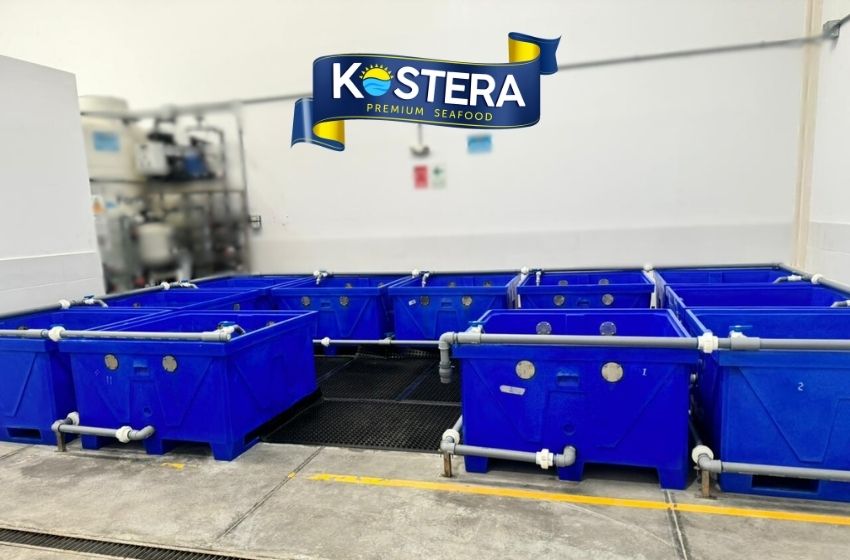
Revolutionizing Marine Food Safety: The Rise and Expansion of Bivalve Mollusk Purification Plants
Bivalve mollusk purification plants have become an essential resource in ensuring marine food safety worldwide, including in Peru, where the aim is to guarantee the safety of products from the Peruvian sea. These facilities ensure that products such as mussels, oysters, and clams undergo a natural filtration process using seawater treated with UV light to eliminate pathogens and contaminants. Purification is mandatory in countries such as Spain, France, Italy, Chile, Canada, Austria, and Japan, where food safety regulations require this process before the sale of bivalve mollusks and other seafood.
The Origin and Expansion of Mollusk and Shellfish Purification Plants
The
first bivalve mollusk purification plant was established in
Galicia, Spain, as a response to public health issues caused by marine
pollution. The combined effects of industrialization, tourism, and intensive
agricultural practices compromised water quality along the Galician coast,
posing risks to both ecosystems and consumers. In 1962, the Spanish Institute
of Oceanography promoted the implementation of purification plants, leveraging
innovations such as ozone treatment by Mr. Fauvel. This pioneering model
demonstrated the effectiveness of purification, setting a benchmark for safe
mollusk production and inspiring other nations.
The Adoption of Purification Technology Worldwide
The use of purification technology has expanded globally, including in Peru and other countries:
- Chile: The National Fisheries and Aquaculture Service (SERNAPESCA) regulates the purification of seafood in extraction areas and processing plants for export.
- Canada: The Canadian Food Inspection Agency (CFIA) oversees purification to ensure compliance with marine food safety standards.
- Austria: As part of the European Union, Austria adheres to community regulations requiring mollusk purification before commercialization.
- Japan: The Japanese government enforces strict regulations for bivalve mollusk purification, preventing foodborne illnesses.
Additionally, the Food and Agriculture Organization (FAO) has documented the presence of purification plants in various countries:
- France and Japan: Leaders with over 1,000 purification plants each.
- Italy, the United Kingdom, and Spain: Host 114, 82, and 60 plants respectively.
- Other Nations: Portugal (22), Ireland (20), the Netherlands (10), China (7), Malaysia (2), Morocco (2), and the Philippines (1).
By emphasizing care and sanitation of sea mollusks, these countries have significantly increased the demand for their products in international markets. Purification enables compliance with international standards, such as those of the European Union, facilitating access to demanding markets and bolstering consumer trust.
KOSTERA’s Role in Marine Food Safety for the Peruvian Sea
KOSTERA is dedicated to positioning Peru at the forefront of marine food safety, aligning with international standards. By operating a high-tech bivalve mollusk purification plant, KOSTERA ensures rigorous microbiological control at every stage of mollusk processing. This approach establishes Peru as a regional leader, ensuring that Peruvian products meet the quality standards of the world’s most discerning markets.
With this technology, KOSTERA contributes to the development of modern infrastructure that guarantees bivalve mollusksand other seafood from the Peruvian sea are safe and reliable for consumption. This advancement reinforces both national and international market confidence in Peruvian marine products, benefiting public health and the competitiveness of the seafood sector in Peru.
Referencias Bibliográficas:
Amengual, J. (1990). MOLLUSC SANITATION AND MARKETING IN SPAIN. FAO. https://www.fao.org
Lee, R., Lovatelli, A. y Ababouch, L. (s.f.). Depuración de bivalvos: aspectos fundamentales y prácticos. FAO. https://www.fao.org
Servicio Nacional de Pesca y Acuicultura (SERNAPESCA). Manual de Sistema de Control de Inocuidad y Certificación Sanitaria de Moluscos Bivalvos. https://www.sernapesca.clf
